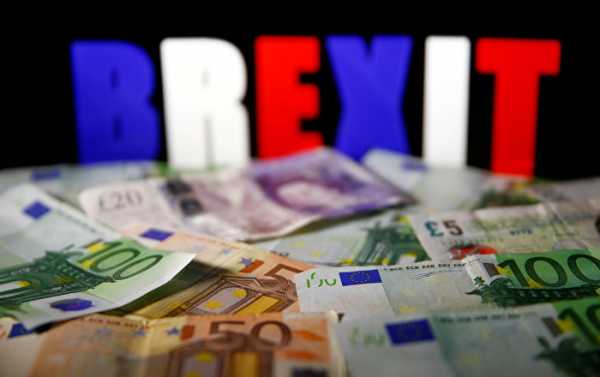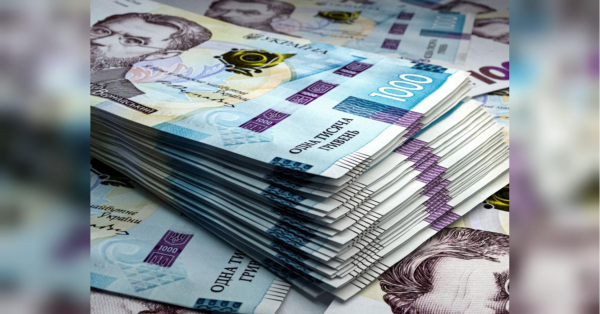
EU member states are due to bear a heavier burden after Britain’s withdrawal. RIA Novosti political observer Vladimir Ardaev explains why Eastern and Central European states endorse Brussels’ decision to increase contributions to the bloc, while some Western European countries voice their opposition to the proposal.
While the withdrawal of the United Kingdom from the European Union is likely to seriously affect the bloc’s budget, Brussels calls for increasing contributions to the union have prompted discord among member states, RIA Novosti political observer Vladimir Ardaev writes.
“With Brexit and other changes upcoming, 1.0 will not be enough,” Guenther Oettinger, the European Commissioner for Budget and Human Resources, stated.
Brussels proposed that the EU member states allocate between 1.1 and 1.2 percent of their gross national income (GNI) for the union’s next seven-year budget (2021 to 2027). Previously, they were obligated to contribute one percent of GNI, but in reality, hardly anyone reached this objective.
Oettinger’s offer has divided opinions on whether to increase spending on the bloc. While Central and Eastern European states, nearly unanimously supported Brussels’ initiative, Austria and the Netherlands signaled that they are unwilling to fork out for the bloc.
“The divergence of views between the West and the East of Europe is quite understandable,” Director General of the Russian International Affairs Council (RIAC) Andrey Kortunov told RIA Novosti. “Countries that receive more from the EU than donate are interested in increasing the contributions.”
He recalled that in 2016, Hungary transferred less than one billion euros to Brussels, while receiving more than 4.5 billion euros from the EU. Lithuania got five times more than it contributed and Poland — three times more than it donated. For comparison’s sake, Austria gave more than 2.7 billion to the bloc’s budget, and in return it got less than 2 billion euros. The Netherlands contributed twice as much as it received.
“With the UK withdrawal the European Union loses one of its main donors: Along with Germany, France and Italy, this country formed the core of the Brussels budget,” the Russian scholar stressed. “Fearing that the amount of aid would decrease, the recipients are in every way in favor of maintaining the pan-European budget at the same level.”
At the same time, CEE countries run no risk since their GNI is several times less than that of donor countries, Kortunov underscored.
According to Ardaev, the differences in the “western camp” are primarily caused by political reasons. France and Germany aim to further strengthen their influence in Europe, competing with each other. For Paris and Berlin, the EU’s economic power is a tool for accomplishing their own goals and ambitions, the observer noted.
Austria and the Netherlands’ stance is also understandable, political analyst Dmitry Abzalov, president of the Center for Strategic Communications, noted. “They are involved in the formation of the European budget, but, first, they receive much less from Brussels than they give and second, substantial funds are being spent on economically weak members of the European Union, the number of which is constantly growing,” the analyst told RIA Novosti.
He drew attention to the fact that right-wing and center-right politicians have recently come to power in Austria and the Netherlands and are willing to defend their countries’ national interests.
The two countries have long been dissatisfied with what they perceive as ineffective governance of the EU, given the Netherlands’ earlier opposition to the EU-Ukrainian Association Agreement and Austria’s strong protest against Brussels’ migration policies.
In this light, their refusal to increase contributions to the European Union is quite logical, Abzalov noted, stressing that Vienna and Amsterdam continues to resist the EU’s ineffective management.
Meanwhile, Chancellor Angela Merkel’s political bloc agreed to pay more, following the UK exiting the European bloc. Berlin still remains the largest net contributor to the EU budget.
“With 3 or 3.5 billion euros [3.76-4.4 billion dollars] more from Germany, we could close the gap left by Brexit and finance additional measures. That would be about 10 cents per day more increase per head of population,” Oettinger said, as quoted by the Bild.
The UK held the Brexit referendum on June 23, 2016, which resulted in the country’s decision to leave the European bloc. Brexit talks between Britain and the EU are due to be completed by the end of March 2019. The parties of the negotiations agreed that London will continue to pay membership fees until 2020 and finance several pan-European programs beyond this timeframe.
Sourse: sputniknews.com






